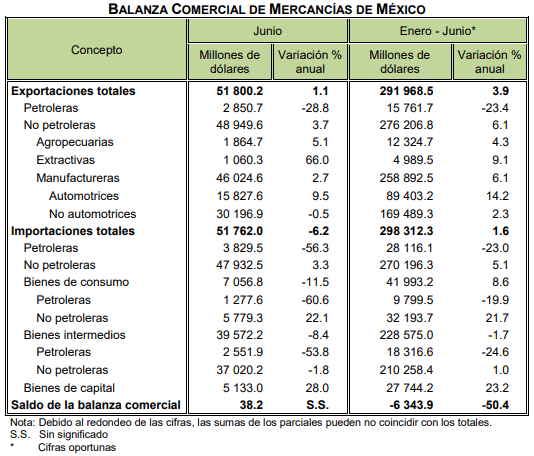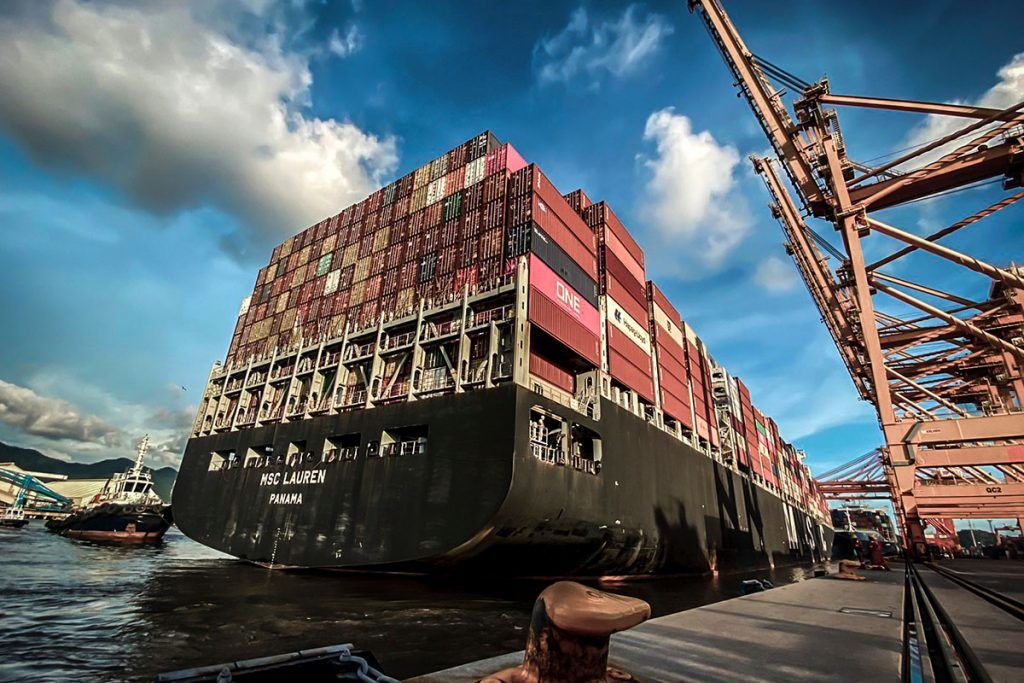Inegi reported this Thursday Mexico‘s foreign trade statistics for the first half of 2023, with a deficit of 6.344 billion dollars.
On the one hand, Mexican exports totaled 291,968.5 million dollars, this is an increase of 3.9% year-on-year.
On the other hand, imports to Mexico totaled 298,312.3 million dollars, an increase of 1.6% year-on-year.

What stands out in the context of these data? The trade war between the United States and China, the war between Russia and Ukraine, the appreciation of the peso against the dollar and the increase in the Federal Reserve‘s short-term interest rate from 5.1% to 5.3%, the highest level since 2001.
While Mexico’s oil exports fell 23.4% year-on-year, to 15,761.7 million dollars in the first half of the current year, non-oil foreign sales rose 6.1%, to 276,206.8 million dollars.
Within non-oil exports, the results were as follows: extractive exports totaled 4,989.5 million dollars (+9.1% year-on-year), agricultural exports amounted to 12,324.7 million dollars (+4.3%) and manufacturing exports totaled 258,892.5 million dollars (+6.1%).
Foreign trade
Among the highlights in foreign trade, an important decision occurred on January 11, 2023. The panel overseeing a dispute between Mexico, Canada, and the United States rejected the U.S. interpretation of certain regional value content requirements under the USMCA. The U.S. argued that the regional value content of a vehicle should be calculated based on the percentage of content for each individual part meeting the regional requirements.
However, the panel ruled otherwise. It determined that essential parts meeting the minimum regional content percentage under the USMCA would be considered entirely «originating in the region.» This classification applies when calculating the vehicle’s overall regional value content.
Another significant event took place in mid-July. The United Kingdom officially signed its accession to the Comprehensive and Progressive Agreement for Trans-Pacific Partnership (CPTPP).
With this, this trade bloc will be extended to Europe and for the first time will have a new non-founding member.
CPTPP is a Free Trade Agreement between Australia, Brunei, Chile, Canada, Japan, Malaysia, Mexico, New Zealand, Peru, Singapore and Vietnam.

